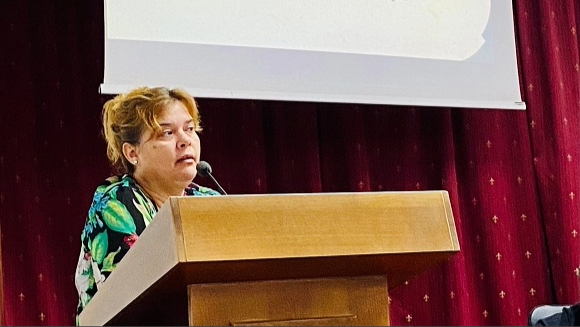Cuba's new Public Health Law will not include the practice of euthanasia, although it recognizes the right to a dignified death, according to the draft version of the law, which is available on the websites of the National Assembly of Popular Power (ANPP) and the Ministry of Public Health (MINSAP).
Presenting the draft at the Cojimar Convention Center in Havana, MINSAP Legal Director Dagmara Cejas Bernet recalled that Article 40 of the Constitution recognizes human dignity as a supreme value that must be preserved at all times, even after death, the state media source Cubadebate reported.
In December of 2022 Cuban Minister of Public Health José Ángel Portal Miranda presented to the ANPP a provisional version of the bill that included recognition of the right to euthanasia.
Now Cejas Barnet has explained that the proposal seeks, in the first place, to recognize the right to a dignified death and to address the different health situations. He clarified that the document focuses on the organization of care at the end of life, but the techniques to end it, such as euthanasia, will be addressed "at a later time, in a later law, when the conditions are created for this."
According to the state media source, the draft, which should have been approved in October, according to the legislative schedule established by the ANPP at its extraordinary session in May, ratifies "universal and free access to health services," in accordance with the provisions of the Constitution, whose Article 31 states, however, that "remuneration in accordance with work done is complemented by the equitable and free provisioning of universal social services and other benefits."
This means that, in Cuba, citizens pay for Public Health, just like in the rest of the world. On the island, non-state workers contribute with their taxes. Those in the state sector contribute through reduced salaries, as recognized in the aforementioned Article.
Some health services, however, will not be covered by said "remuneration in accordance with work done," which is complemented by the "free provisioning of universal social services." Cubans will have to pay, within the Public Health system, for "services considered elective and aesthetic and that do not correspond to medical indications, diseases, their sequelae or accidents," Cejas Bernet stated.
The lawyer also stressed that the previous law, Law 41 of 1983, "established that health services were free, but did not specify the need to provide them with quality."
Hence, the working group that prepared the draft version of the new law considered it important "to address this issue in a specific way, since it is of great importance and strategic," said the jurist.
According to the MINSAP website, Cejas Barnet also emphasized that Article 11 of the draft "ratifies, as a principle of Cuban public health, the furnishing of international aid in solidarity with peoples, governments and other organizations that request it."
Despite the crisis that the Cuban health system is suffering, and its lack of doctors, recognized even by health authorities, the regime continues to export doctors.
On October 30 the First Deputy Minister of MINSAP, Tania Margarita Cruz Hernández, admitted on the television program Mesa Redonda that Cuba lacks doctors, as well as medicines and resources.
That same day President Andrés Manuel López Obrador announced the arrival of 35 Cuban doctors in Mexico, sent by Havana to assist the victims of Hurricane Otis. Those doctors joined the hundreds that the regime had already exported to that country.
Now the regime is including this provision in the draft version of its Public Health Law in order to justify the business that allows it to profit at the expense of the exploitation of professionals and the deterioration of medical care for Cubans.
